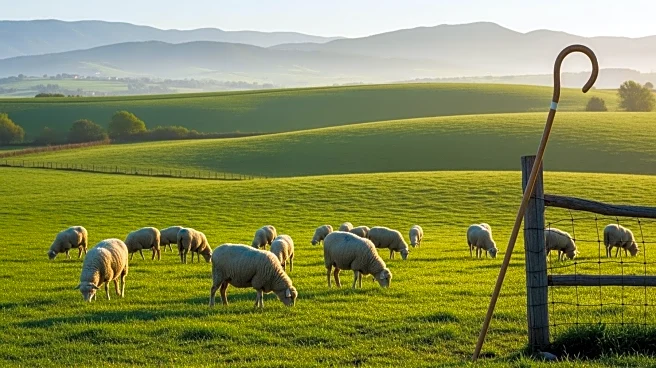What's Happening?
In Los Cortijos, Spain, African migrants are being trained as shepherds to address the labor shortage in rural areas. The region has experienced significant depopulation, making it difficult to fill traditional
roles such as shepherding. A government program is providing training to migrants from Africa, Venezuela, and Afghanistan, enabling them to work on local farms. This initiative not only helps sustain the production of sheep's milk cheese, a regional specialty, but also offers employment opportunities to migrants like Osam Abdulmumen from Sudan, who fled violence in his home country.
Why It's Important?
The program is crucial for maintaining agricultural productivity in Spain's rural areas, which have suffered from decades of depopulation. By integrating migrants into the workforce, the initiative helps preserve traditional industries and supports the local economy. It also provides migrants with stable employment and the chance to build a new life in Spain. The success of this program could serve as a model for other regions facing similar challenges, highlighting the potential benefits of migrant labor in revitalizing rural economies.
What's Next?
The program aims to continue training migrants, with plans to expand its reach and impact. As more migrants are trained and employed, local farms may see increased productivity and sustainability. The initiative could also influence policy discussions on immigration and rural development, encouraging other regions to adopt similar strategies. The long-term success of the program will depend on continued support from the government and collaboration with local communities.
Beyond the Headlines
The integration of migrants into rural industries raises questions about cultural assimilation and community acceptance. While the program offers economic benefits, it also challenges traditional social dynamics in rural areas. The presence of migrants may lead to cultural exchanges and shifts in local attitudes, potentially fostering greater inclusivity and diversity.











